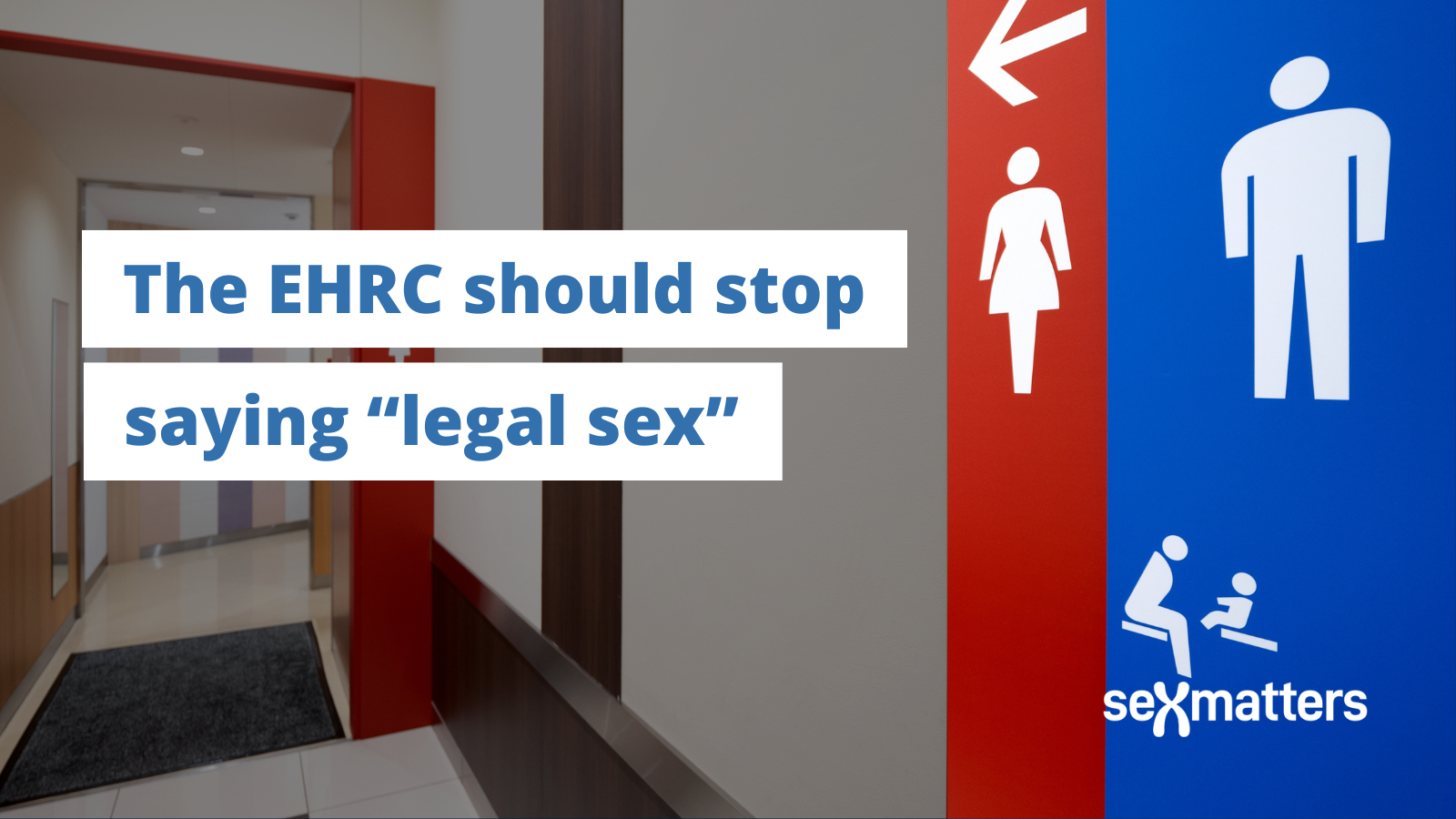Sex Matters responds to EHRC strategy

Sex Matters has responded to the Equality and Human Rights Commission’s 2025–2028 strategic plan.
In 2021 we called on the EHRC to step up and address the issue of sex and gender. We told it about women who stand up against gender ideology being bullied at work and in public life, and how this is undermining trust in the integrity of public organisations and regulators.
We called on the equality watchdog to provide guidance that clarifies the meaning of sex in the law, and makes clear that people should not be discriminated against or harassed because of their beliefs on sex and gender. We asked it to step back from using the Equality Act to promote childhood transition, and to support clear single-sex provision.
We also called on it to meet with us, and with groups such as Fair Play For Women, Woman’s Place UK, Transgender Trend and LGB Alliance, to commission research and to publish new guidance on single-sex services.
The EHRC has done much of this. And because of that its chair, Kishwer Falkner, became the target of a vicious backlash. She faced accusations and attacks in the media, an internal investigation, masked men pouring urine around the entrance to the EHRC’s London office and complaints led by Stonewall to the UN body GANHRI. As we wrote in a letter to GANHRI, these are the same kind of attacks, vexatious complaints and smears that have been used to harass and intimidate so many ordinary women at work.
The EHRC was investigated by GANHRI and retained its “A” grade status, but responding to these attacks diverted it from its core purpose.
In our response to its new strategy, we thank the EHRC for its work and its chair for her courage. We call on it to continue to work on the issue of sex-based rights, and to apply the equality and human-rights framework clearly and simply, using natural language.
The EHRC wants to help people “live well and live well together”. To do this, it must face up to conflicts of interests between women and trans-identifying men:
- Some trans-identified people think that in order for them to “live well”, other people must be forced to pretend they have changed sex and to let them break sex-based rules (for instance, by accepting men who identify as women in women’s spaces).
- This undermines other people’s ability to “live well” if they are sanctioned at school or at work, or even lose their job, for speaking truthfully, or if they lose single-sex facilities, sports and associations. In particular it leads to breaches of Article 3 as women find themselves sharing intimate spaces with men and being searched or given intimate care by them against their will.
In human-rights terms, transgender people’s article 8 right to private life and autonomy comes into conflict with other people’s rights under articles 3, 8, 9, 10 and 11.
We also argue that the EHRC should pay more attention to safeguarding and ensure that policy recommendations focused on protected characteristics do not undermine mechanisms developed to keep children and vulnerable people safe.
We make 10 specific recommendations:
- Stop using the term “legal sex” and refer to “sex as modified by a gender-recognition certificate” where needed.
- Undertake an inquiry into gender-critical belief discrimination.
- Enter into legally binding agreements with organisations to systematically address discrimination against gender-critical people using powers under s23 of the Equality Act 2010.
- Provide guidance on single-sex services that is clear and simple. Answers should be concrete and reality-based, and available in easy-reading and postcard-sized versions.
- Review guidance on the public-sector equality duty and equality impact assessments to make clear that sex means the material reality of being male and female – not gender identity.
- Intervene in the For Women Scotland case to support an interpretation of the Equality Act informed by human rights.
- Monitor data on the two sexes.
- Engage with digital-identity data standards, highlighting that everyone needs to be able to have their sex accurately recorded and validated for their own safety and to access appropriate services.
- Convene difficult conversations and bring stakeholder groups together around a robust concept of universal human rights and mechanisms for balancing them.
- Develop and publish a safeguarding policy, and a process for assessing the safeguarding implications of the guidance and recommendations it produces.
